The ketogenic diet is a low-carbohydrate, high-fat, moderate-protein diet. Carbs are the body's primary source of energy, however on a rigorous ketogenic diet, carbohydrates account for less than 5% of total calorie intake. The body enters a metabolic condition known as ketosis when carbs are reduced. In the absence of circulating blood sugar from meals, the body begins to break down stored fat into molecules called ketone bodies for energy. Most cells will utilise ketone bodies to create energy after the body achieves ketosis, which will last until you ingest carbs again.
Until recently, the ketogenic diet was primarily utilised in clinical settings to treat epilepsy in children. "Now there is a lot of interest in how the diet might assist with different neurological illnesses, cancer, diabetes, PCOS [polycystic ovary syndrome], obesity, high cholesterol, and cardiovascular disease," explains Emily Stone, M.S., R.D. Keto is also used by those who want to lose weight.
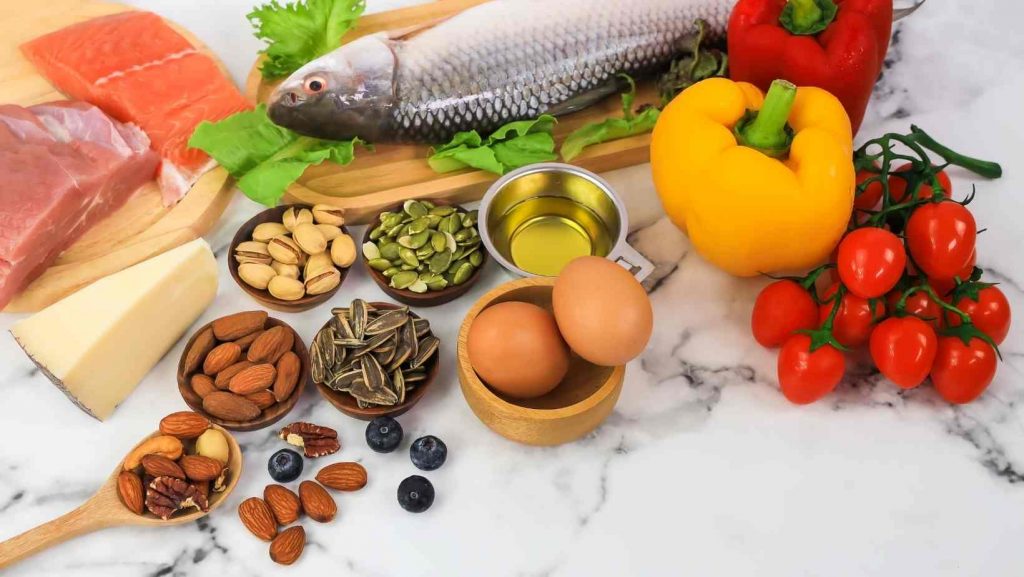
Even if you know you need to consume a low-carb, high-fat, moderate-protein diet, deciding which things to eat might be difficult. When following a ketogenic diet, here's a list of foods you can eat, foods you should avoid, and foods you may sometimes consume.
read also: A Keto Diet For Beginners
What Can You Eat on a Ketogenic Diet?
Here's a list of all the low-carb, keto diet foods you can consume while you're on the keto diet.
Jump to:
1. Seafood and Fish
B vitamins, potassium, and selenium are abundant in fish, which is also protein-rich and carb-free. Omega-3 fats contained in salmon, sardines, mackerel, albacore tuna, and other fatty fish have been shown to reduce blood sugar levels and boost insulin sensitivity. Fish consumption has been linked to a lower risk of chronic illness and enhanced mental health. At least two 3-ounce portions of fatty fish should be consumed weekly.
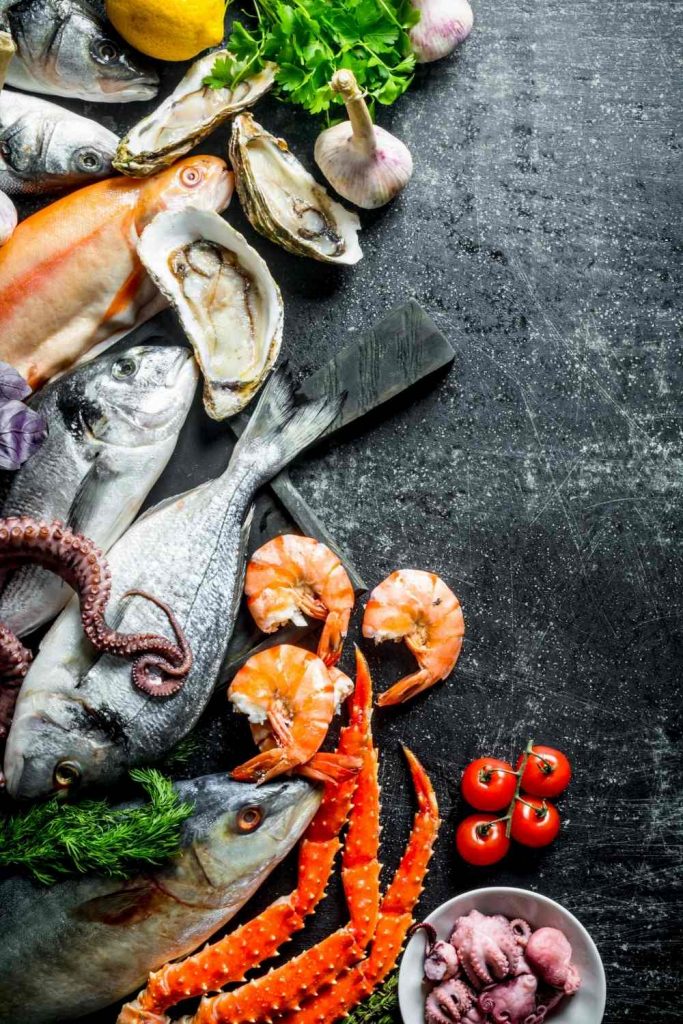
2. Veggies with Low Carbohydrate
Non Starchy veggies are low in calories and carbohydrates but rich in a variety of nutrients, including vitamin C and a variety of minerals. They also include antioxidants, which help protect cells from free radical damage. Non Starchy veggies with fewer than 8 g of net carbohydrates per cup are a good choice. Total carbs minus fibre equals net carbs. Broccoli, cauliflower, green beans, bell peppers, zucchini, and spinach are all excellent choices.
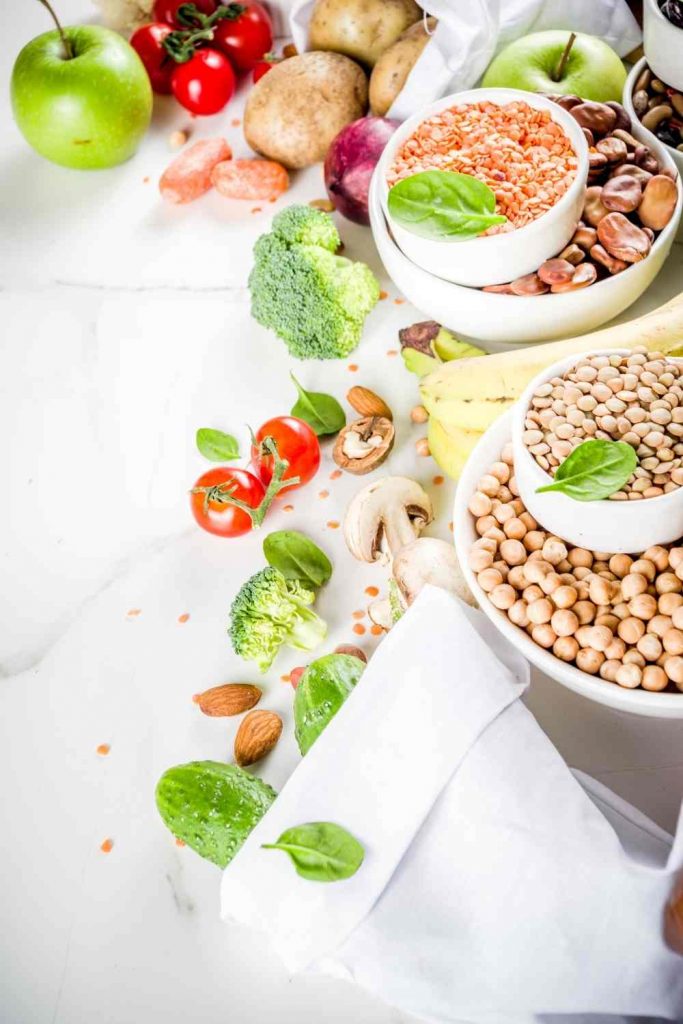
3. Cheese
Cheese is a wonderful match for the ketogenic diet since it has no carbs and is rich in fat. It's also high in calcium and protein. However, a 1-ounce slice of cheese has roughly 30% of the recommended intake for saturated fat, so watch your quantities if you're concerned about heart disease.

4. Cottage Cheese with Plain Greek Yogurt
Cottage cheese and yoghurt are abundant in protein and calcium. Plain Greek yoghurt has just 5 grammes of carbs and 12 grammes of protein per five ounces. Cottage cheese provides 5 grammes of carbs and 18 grammes of protein in the same quantity. Calcium and protein have been found in studies to lower hunger and enhance fullness. Full-fat yoghurts and cottage cheese help you stay fuller for longer, and full-fat foods are allowed on the ketogenic diet.
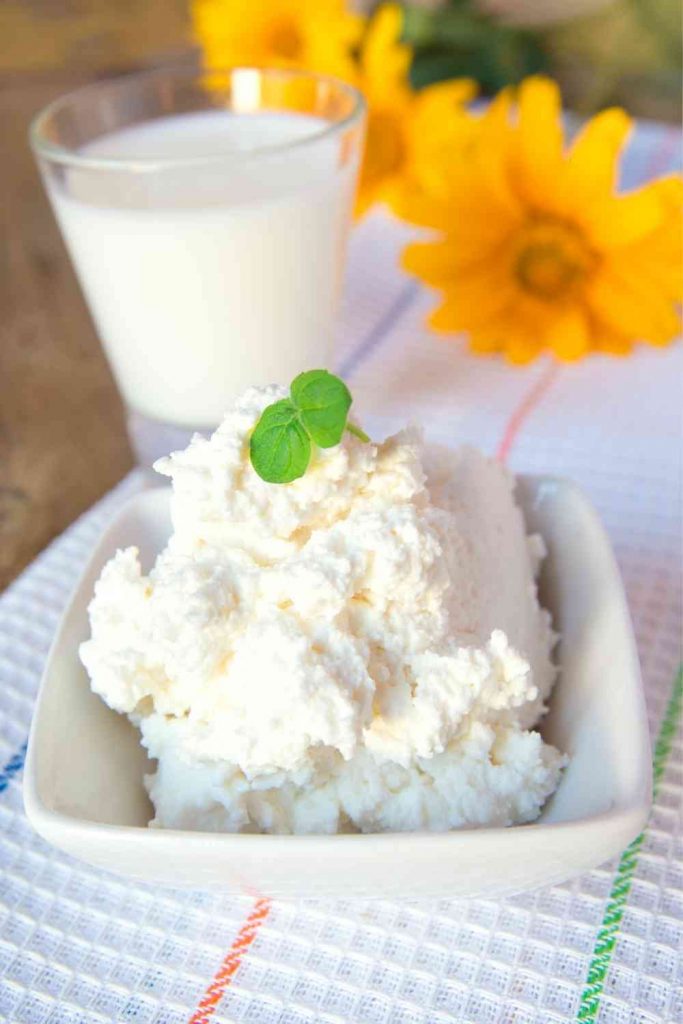
read also: 10 Healthy Low-Carb Snack Ideas
5. Avocados
Avocados, which are strong in monounsaturated fat and potassium, a mineral that many Americans lack, are a good choice for heart-healthy fats. A half-medium avocado has 9 grammes of total carbs, with 7 grammes of fibre. Animal fats may be replaced with plant fats like avocados to help lower cholesterol and triglyceride levels.
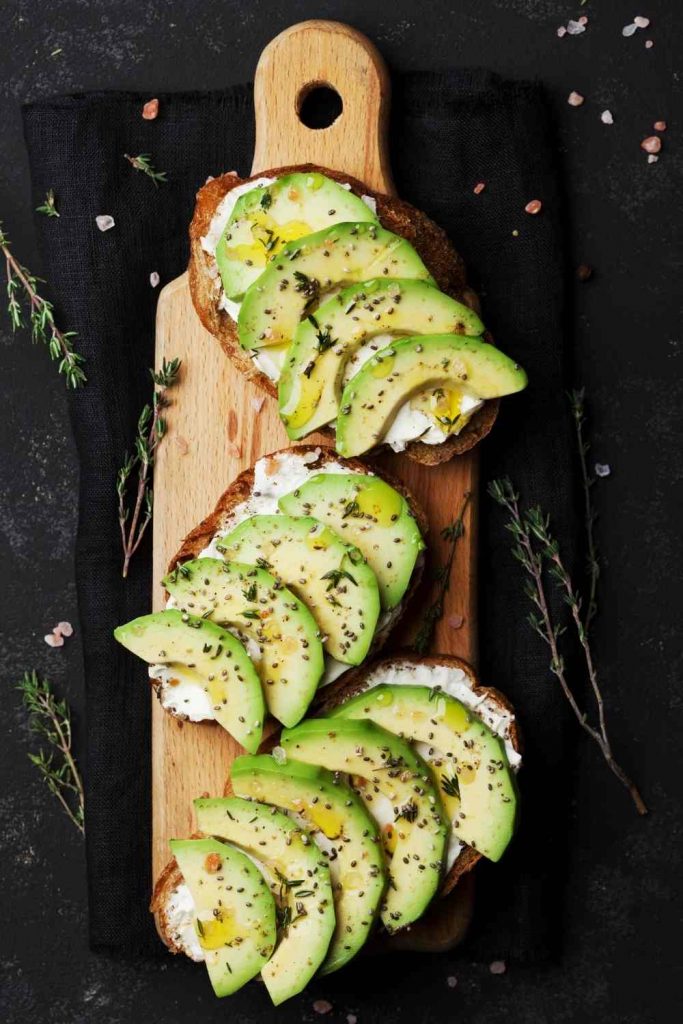
6. Poultry and meat
Meat is a good source of lean protein and is a must-have on the keto diet. Fresh meat and poultry are carbohydrate-free and high in B vitamins and minerals including potassium, selenium, and zinc. While processed meats like bacon and sausage are permitted on the keto diet, they aren't good for your heart and may increase your risk of some cancers if consumed in excess. Limit processed meats and eat more poultry, fish, and beef.
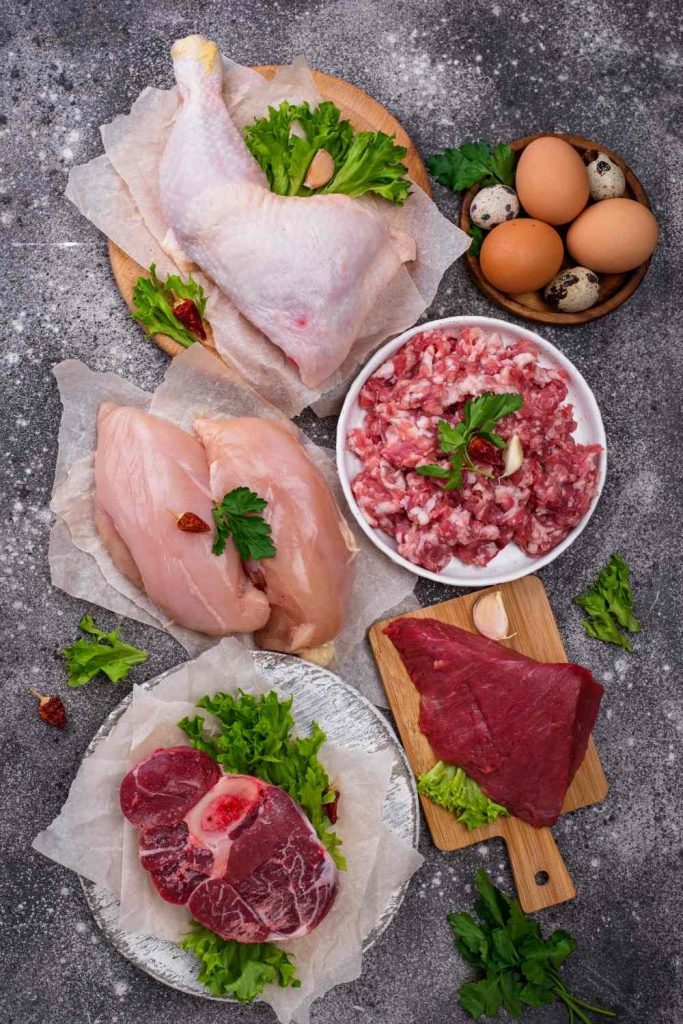
7. Eggs
Protein, B vitamins, minerals, and antioxidants are all abundant in eggs. Two eggs have no carbs and 12 grammes of protein in them. Eggs include antioxidants such as lutein and zeaxanthin, which help maintain eye health and activate hormones that improve feelings of fullness and keep blood sugar levels constant.
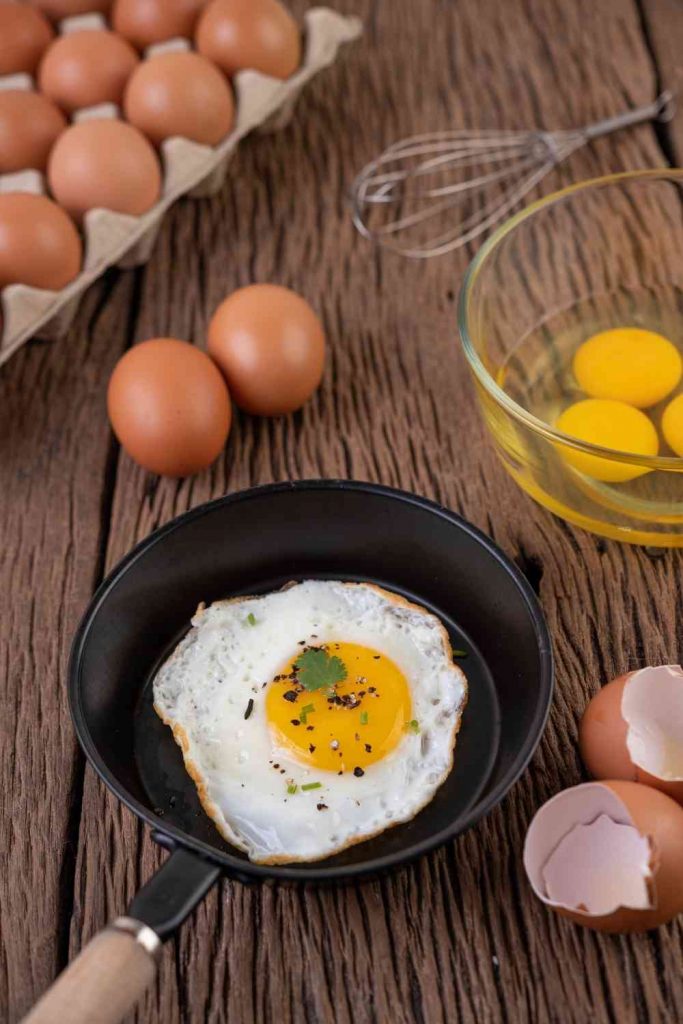
read also: 10 Tips For Cooking And Meal Preparation
8. Nuts, seeds, and good fats
Nuts and seeds are high in fibre, protein, and healthful polyunsaturated and monounsaturated fats. They're also quite low in net carbohydrates. The keto diet recommends olive oil and coconut oil as the two oils to use. Olive oil has a lot of oleic acid, which is linked to a decreased risk of heart disease. Coconut oil is heavy in saturated fat, but it also contains medium-chain triglycerides (MCTs), which may help you produce more ketones. MCTs may help you lose weight and abdominal fat by increasing your metabolic rate. When ingesting any form of healthy fat, keep portion amounts in mind.
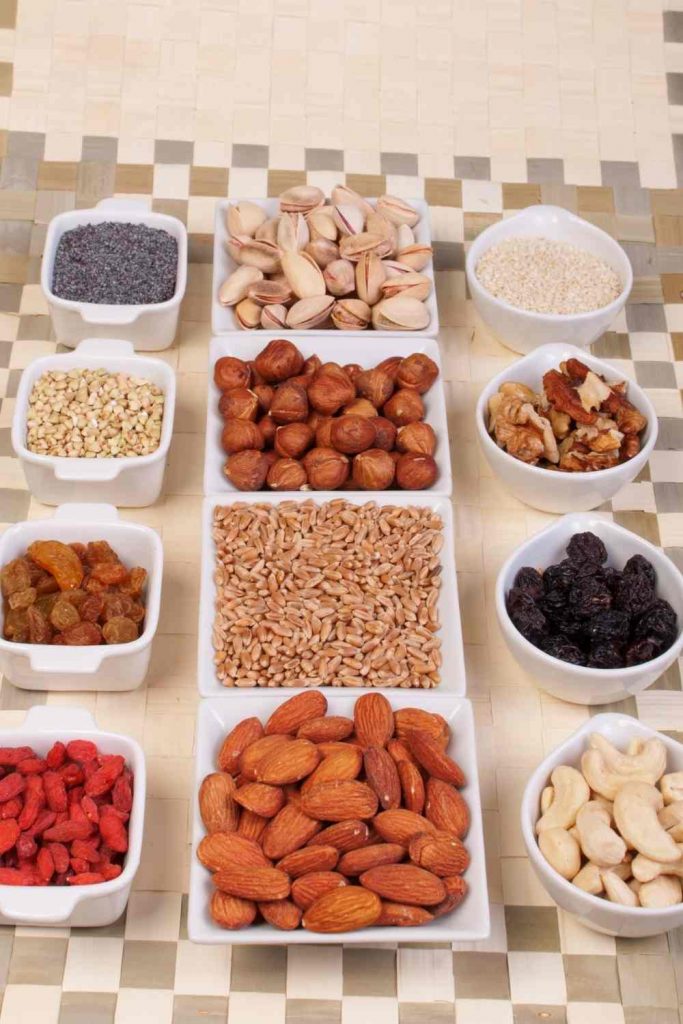
Net carbohydrate amounts for 1 oz. (28 g) of nuts and seeds (total carbohydrates minus fibre):
- 3 g net carbohydrates in almonds (6 g total carbs)
- 1 g net carbohydrates in Brazil nuts (3 g total carbs)
- 8 g net carbohydrates in cashews (9 g total carbs)
- 2 g net carbohydrates in macadamia nuts (4 g total carbs)
- 1 g net carbohydrates in pecans (4 g total carbs)
- 5 g net carbohydrates pistachios (8 g total carbs)
- 2 g net carbohydrates in walnuts (4 g total carbs)
- 2 g net carbohydrates in chia seeds (12 g total carbs)
- 0 g net carbohydrates in flaxseeds (8 g total carbs)
- 2 g net carbohydrates in pumpkin seeds (4 g total carbs)
- 4 g net carbohydrates in sesame seeds (7 g total carbs)
9. Berries
Antioxidants in berries help to decrease inflammation and protect against illness. They're rich in fibre and low in carbohydrates.
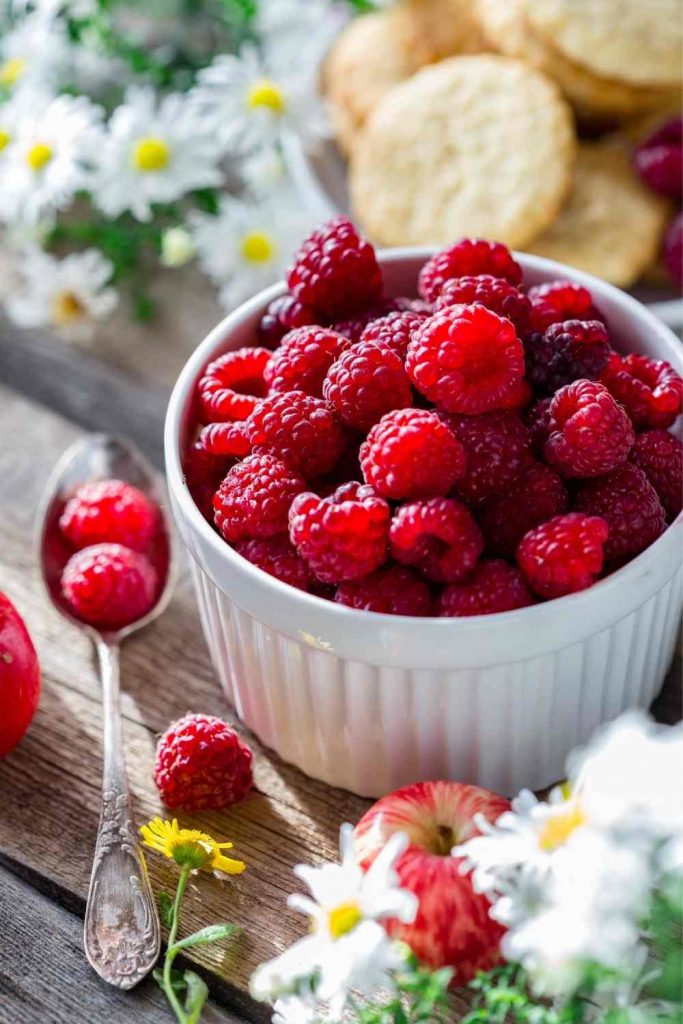
1/2 cup of berries equals 1 gramme of carbs:
- 3 g net carbohydrates in blackberries (7 g total carbs)
- 9 g net carbohydrates in blueberries (11 g total carbs)
- 3 g net carbohydrates in raspberries (7 g total carbs)
- 3 g net carbohydrates strawberries (6 g total carbs)
10. Tea and coffee without sugar
Because plain coffee and tea have no carbs, fat, or protein, they are allowed on the keto diet. Coffee has been shown in studies to reduce the risk of cardiovascular disease and type 2 diabetes. Tea has more antioxidants than coffee and contains less caffeine; drinking tea may lower your risk of heart attack and stroke, aid weight reduction, and enhance your immune system.
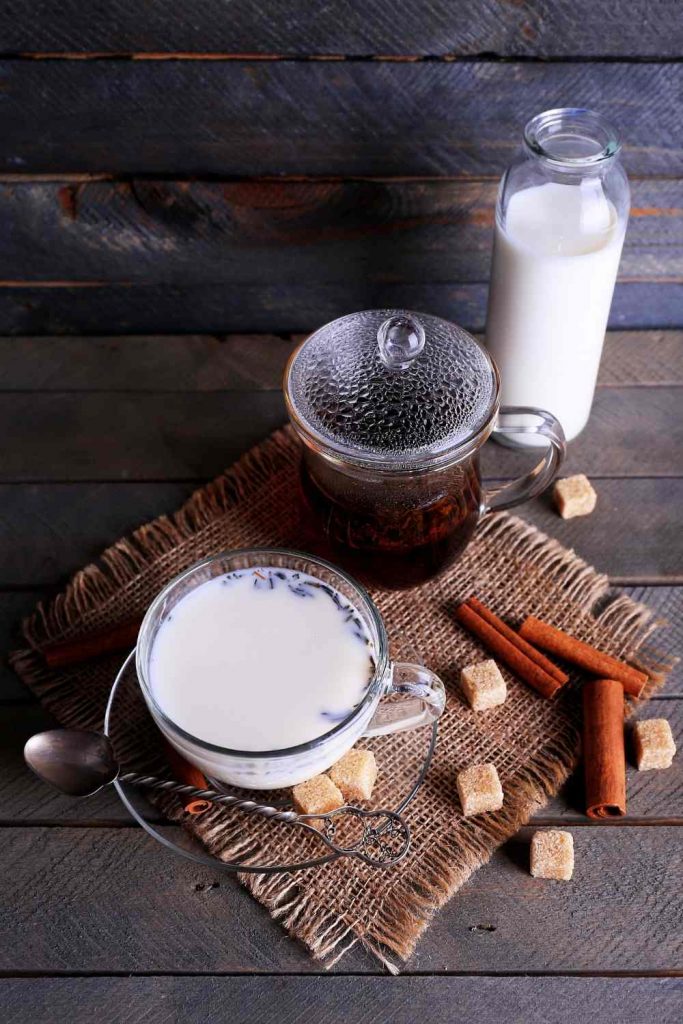
11. Cocoa powder with dark chocolate
The number of carbohydrates in these varies depending on the kind and how much you ingest. Dark chocolate includes flavanols, which may lessen the risk of heart disease by decreasing blood pressure and keeping arteries healthy. Cocoa has been dubbed a "superfruit" because of its high antioxidant content.




